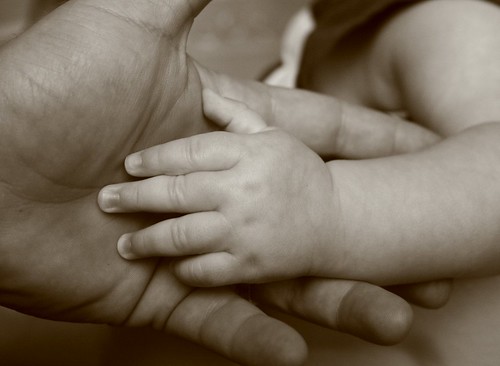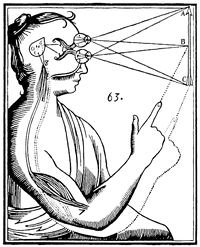Anyone remember reading
Amelia Bedelia books when you were young? Amelia Bedelia was a maid who wore crazy hats and took things literally - throwing a tent away after being asked to pitch it, putting clothes on the chicken she was asked to dress, and decorating the curtains she was asked to draw. Funny stuff to a 6-year old.
Amelia Bedelia did not understood that conversations are not supposed to be taken literally. We all make extensive use of metaphors in speech - we can think of talking about our troubles weighing us down, or feeling like we are on cloud nine; of someone who has a cold heart, or who warms our soul; of feeling puffed up with pride, or in the case of unwelcome events, very small. As we get older, we understand that these are symbolic in nature. However, as it turns out, we may not have left all that literalism behind with our youth.
A series of recent studies suggest that many of our abstract cognitions may be interpreted literally. In other words, our bodies may in some cases mirror and reflect our abstract thoughts. Many of us still hold to the concept of mind-body dualism; the idea there is something unique and special and
separate about our minds versus our bodies. This series of clever studies suggest that this dichotomy is even more false than it is generally acknowledged to be.
"Researchers at the University of Aberdeen found that when people were asked to engage in a bit of mental time travel, and to recall past events or imagine future ones, participants’ bodies subliminally acted out the metaphors embedded in how we commonly conceptualized the flow of time. As they thought about years gone by, participants leaned slightly backward, while in fantasizing about the future, they listed to the fore. "
In a similar fashion, other studies in this newly emerging field of embodied cognition suggest that we might find people friendlier when we are holding a warm drink, or might be more likely to use handiwipes when we're reminded of the wrongs we have committed, and think heavier textbooks contain more vital information.
“How we process information is related not just to our brains but to our entire body,” said Nils B. Jostmann of the University of Amsterdam. “We use every system available to us to come to a conclusion and make sense of what’s going on.”
These physical accompaniments to the metaphors in language suggest that we think, not just with our heads, but also with our bodies. They also suggest a number of fascinating areas for future research. It remains to be seen whether the effects found in the laboratory translate into an influence in the real world. There are also implications with respect to cross-cultural differences. Would cultures with different metaphors show different physical correlates? In Chinese, the past is thought of as being in front of you, and the future behind you. Would Chinese subjects lean in the opposite direction to American samples? And last, and perhaps more importantly - can we influence people's thoughts by influencing their bodies?


